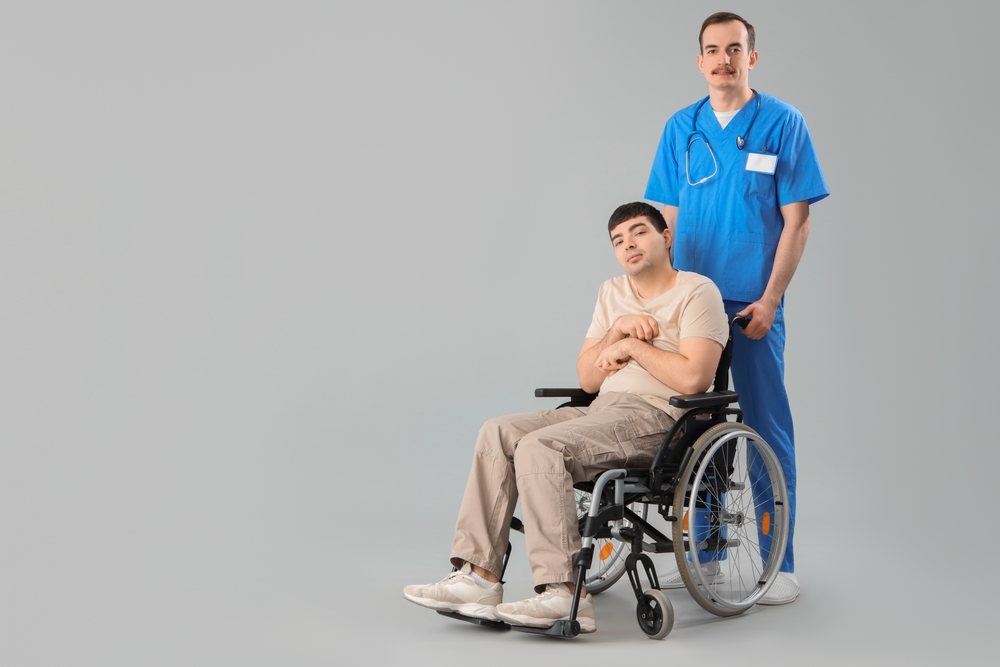Mark Kopec Now
Paralysis
The Baltimore Surgery Paralysis Lawyer
Surgical errors can have devastating consequences, including paralysis. If you or a loved one has suffered paralysis due to a surgical error, it’s important to understand your legal rights. Accordingly, this webpage will provide an overview of the types of surgical errors that can cause paralysis, the medical conditions requiring surgery, the types of surgeries involved, and the potential for medical malpractice claims. If you have been injured, you may need the Baltimore surgery paralysis lawyer at the Kopec Law Firm.
Types of Medical Conditions Requiring Surgery
Many medical conditions require surgery to treat or manage symptoms. Some common conditions that may necessitate surgery include:
- Spinal Conditions: Herniated discs, spinal stenosis, and spinal tumors can compress nerves and cause pain or weakness. Surgery may be necessary to decompress the nerves and alleviate symptoms.
- Brain Tumors: Brain tumors can cause neurological deficits, including paralysis. Surgery may be required to remove the tumor or relieve pressure on the brain.
- Vascular Conditions: Atherosclerosis, aneurysms, and blood clots can disrupt blood flow to the brain or spinal cord, leading to stroke or paralysis. Surgery may be necessary to restore blood flow.
- Orthopedic Conditions: Fractures, joint degeneration, and sports injuries can require surgery to repair damaged tissues and restore function.

Types of Surgeries
The specific type of surgery will depend on the underlying medical condition. Some common surgeries that may lead to paralysis if performed incorrectly include:
- Spinal Surgery: Laminectomy, discectomy, and spinal fusion are common procedures for treating spinal conditions.
- Brain Surgery: Craniotomy and tumor resection are common procedures for treating brain tumors.
- Vascular Surgery: Carotid endarterectomy, angioplasty, and bypass surgery are common procedures for treating vascular conditions.
- Orthopedic Surgery: Hip replacement, knee replacement, and spinal fusion are common orthopedic procedures.
Types of Doctors Performing the Surgeries
The type of doctor performing the surgery will also depend on the specific condition. Some common types of doctors who may perform surgeries that can lead to paralysis include:
- Neurosurgeons: Neurosurgeons specialize in surgery of the brain, spine, and nervous system.
- Orthopedic Surgeons: Orthopedic surgeons specialize in surgery of the musculoskeletal system, including bones, joints, muscles, ligaments, and tendons.
- Vascular Surgeons: Vascular surgeons specialize in surgery of the blood vessels.
How Paralysis Occurs
Paralysis can occur as a result of various surgical errors, including:
- Nerve Damage: Surgical instruments or techniques can inadvertently damage nerves, leading to loss of sensation or movement.
- Blood Clot Formation: Blood clots can form in the veins after surgery, blocking blood flow and potentially causing paralysis.
- Infection: Infections can spread to the brain or spinal cord, causing inflammation and damage to nerve tissue.
- Anesthesia Errors: Errors in administering anesthesia can lead to oxygen deprivation to the brain, resulting in paralysis.
Types of Medical Malpractice Claims with the Baltimore Surgery Paralysis Lawyer
If you believe that a surgical error caused your paralysis, you may have grounds for a medical malpractice claim. Some common types of medical malpractice claims related to surgical errors include:
- Misdiagnosis: If your doctor failed to diagnose a condition that required surgery, and the delay in treatment led to paralysis, you may have a claim.
- Failure to Obtain Informed Consent: If your doctor did not fully inform you of the risks and benefits of surgery, you may have a claim.
- Surgical Error: If your surgeon made a mistake during the procedure that caused your paralysis, you may have a claim.
- Failure to Monitor: If your doctor failed to monitor you after surgery, and this led to complications such as blood clots or infection, you may have a claim.
Types of Damages Recoverable
If you successfully pursue a medical malpractice claim, you may be able to recover damages for:
- Medical Expenses: This includes past and future medical expenses related to your paralysis, such as hospital bills, rehabilitation costs, and assistive devices.
- Lost Wages: This includes past and future lost wages due to your inability to work.
- Pain and Suffering: This includes compensation for the physical and emotional pain and suffering you have experienced as a result of your paralysis.
- Loss of Consortium: This includes compensation for the loss of companionship, love, and also support from your spouse or partner.
Next Step: Call the Baltimore Surgery Paralysis Lawyer
Surgical errors can have devastating consequences, including paralysis. If you believe that a surgical error caused your paralysis, it’s important to consult with an experienced medical malpractice attorney. We can help you understand your legal rights and pursue compensation for your injuries.
Visit the free consultation page or video. Then contact the Kopec Law Firm at 800-604-0704 to speak directly with Attorney Mark Kopec. He is a top-rated Baltimore medical malpractice lawyer. The Kopec Law Firm is in Baltimore and pursues cases throughout Maryland and Washington, D.C.





